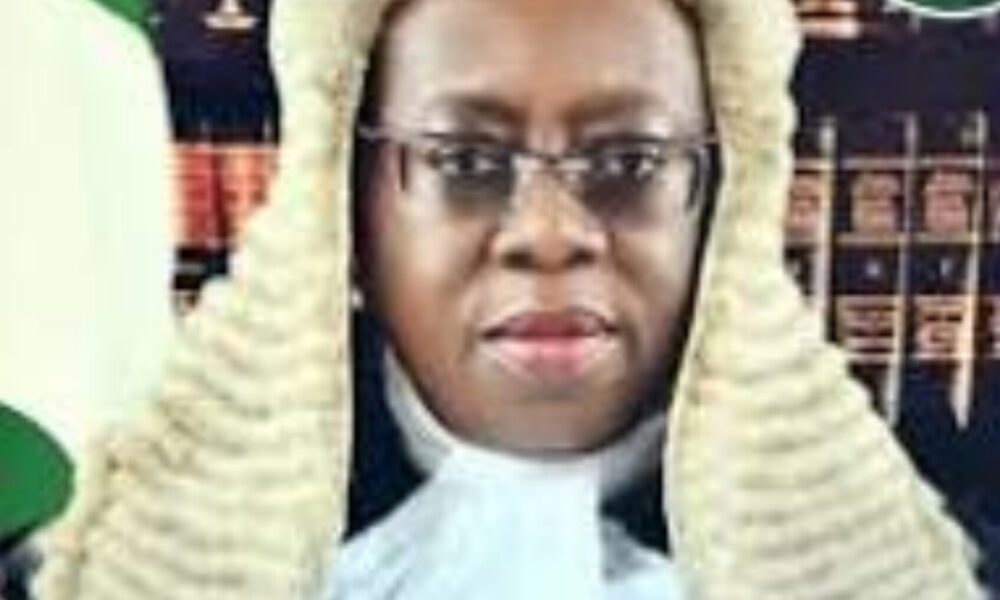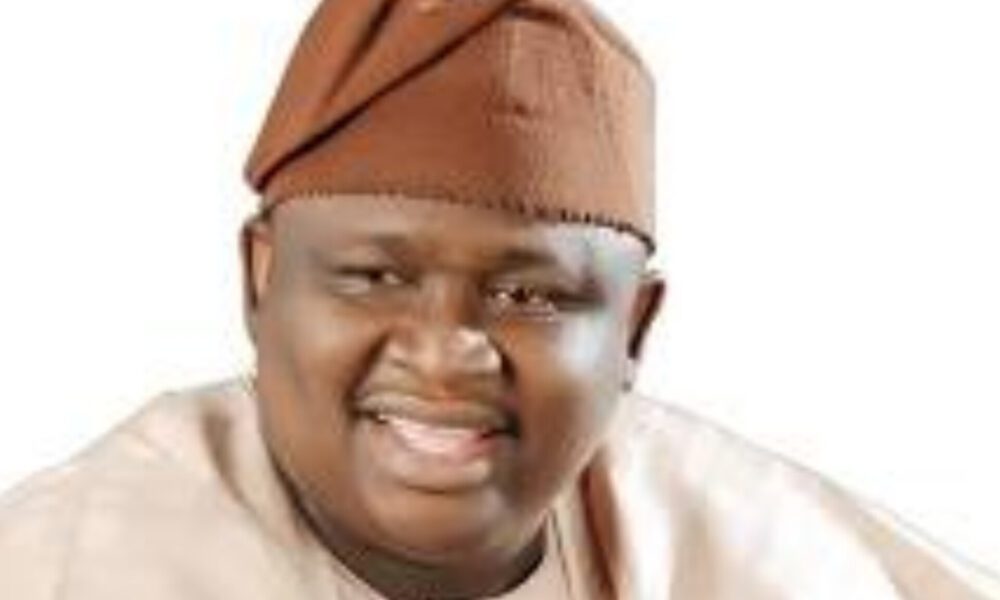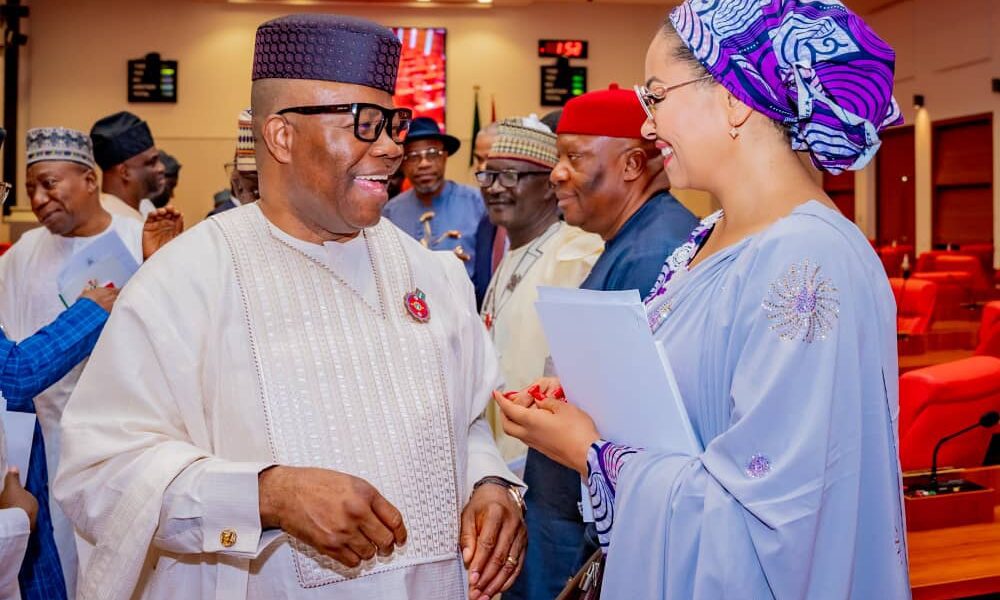***Promises to deal with senior legal luminaries over subjudice
The Chief Justice of Nigeria who was confirmed by the Nigerian Senate on Wednesday, Justice Kudirat Kekere-Ekun has read the riot act to senior legal professionals who publicly comment on ongoing cases, especially those before the Court of Appeal or the Supreme Court.
She warns that under her watch as CJN such practice would not be condoned adding that they would be decisevely dealth with.
Responding to a question by the President of the senate Godswill Akpabio during the screening for her confirmation she said, “I want to assure you that as chairman of the Legal Practitioners Privileges Committee, We will ensure that those who should be disciplined, Those who are in the habit of speaking on social media Condemning the judiciary Commenting on cases that are sub judice will not have anywhere to hide, Kekere-Ekun, reaffirmed her dedication to upholding judicial integrity and enforcing strict discipline across the judiciary.
She highlighted her zero-tolerance for corruption and commitment to ensuring compliance with the judiciary’s code of conduct.
Justice Kekere-Ekun emphasized the role of the National Judicial Council’s (NJC) performance evaluation committee, which assesses judges’ work in terms of quality, punctuality, and overall conduct.
She mentioned plans to further tighten these evaluation processes to uphold high judicial standards.
She promised to exhibit the highest level of integrity and discipline in the judiciary, warning sternly
that the days of conflicting court judgements are over and that any judicial officer found culpable, abusing court processes or trying to mislead the court would face sanctions.
She frowned at a disturbing trend that sees judges indiscriminately issuing ex-parte motions.This too on her watch would attract serious punishment.
She vowed to instill the highest level of discipline in the judiciary , deal decisively with erring judicial officers who peddle conflicting court judgements and those who deliberately abuse court processes.
A month after being sworn in as Acting Chief Justice of Nigeria , Kudirat Kekere Ekun steps into the hallowed chamber of the Senate at exactly 12:30 , for a mandatory screening and confirmation by the lawmakers.
Addressing concerns about judicial independence, she called for a more transparent and rigorous process for appointing judicial officers, assuring the Senate that the NJC is actively working on improvements.
She stressed the need for better welfare and infrastructure for judicial officers to ensure they can perform their duties effectively.
On the backlog of cases at the Supreme Court, Kekere-Ekun advocated limiting the number of cases reaching the apex court, particularly pre-election and interlocutory appeals.

She argued that many cases should conclude at the Court of Appeal to allow the Supreme Court to focus on policy and constitutional matters. Rather than increasing the number of justices, she proposed refining case jurisdiction to reduce congestion.
Justice Kekere-Ekun emphasized her willingness to collaborate with the National Assembly and Executive to reform laws that promote judicial independence and improve the legal system.
Kekere-Ekun hopes to embrace technology-including virtual court sittings to speed up cases even as she advised courts to fine-tune their rules and eliminate unnecessary bottlenecks.
According to her, pre-election matters should terminate at the Court of Appeal to allow the Supreme Court deal with pressing policy matters.
Akpabio had raised concerns about senior legal professionals who publicly comment on ongoing cases, especially those before the Court of Appeal or the Supreme Court.
He noted that the practice, which was uncommon in the past, has become prevalent and poses a threat to the integrity of the judiciary.
He argued that such public commentary on sub judice matters, particularly by senior lawyers, could unfairly influence the outcomes of cases and mislead junior lawyers into believing this conduct is acceptable. He urged the Acting Chief Justice to take a firm stance against the practice, calling for a collaborative effort between the judiciary and the Nigerian Bar Association (NBA) to hold these senior lawyers accountable.
He suggested that disciplinary measures, including the potential revocation of the Senior Advocate of Nigeria (SAN) title, could serve as a deterrent to others and restore the integrity of the judicial process.
Akpabio had also emphasized the importance of ensuring that cases are argued in court rather than in the media, social platforms, or television. He expressed confidence that under Kekere-Ekun’s leadership, the judiciary could implement stronger procedures to curb this behavior and send a clear message that such actions would no longer be tolerated, thereby safeguarding the rule of law and ensuring justice is delivered fairly.
Kekere-Ekun who was accompanied by the upper echelons of Nigeria’s judiciary, quickly settled in -taking tough questions from lawmakers and in most cases reading the riot act.
After roughly two hours of screening, senate considered Kekere-Ekun fit for the job and swiftly confirmed her.
President Bola Tinubu had in August appointed Kudirat Kekere -Ekun as Acting CJN, following the retirement of Chief Justice Kayode Ariwoola.
She stands on the threshold of history as the 23rd Chief of Nigeria and the second woman to occupy the seat.




